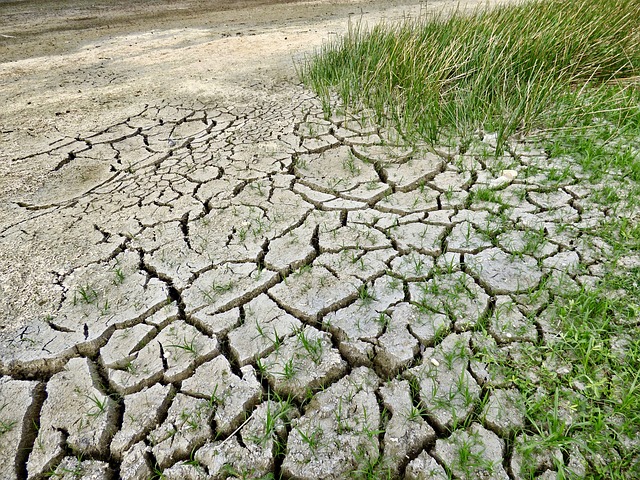In early April 2024, the European Court of Human Rights (ECtHR) issued a landmark judgment concerning the fight against climate change with the aim of protecting human rights. The Court emphasized the obligation of states to take effective action against climate change in order to safeguard human rights.
What is the case about?
In the case of KlimaSeniorinnen vs. Switzerland, the ECtHR ruled in favor of a group of elderly Swiss women who sued their government for failing to take adequate measures to reduce greenhouse gas emissions, which they claimed exposed them to increasingly frequent and life-threatening heatwaves.
The applicants argued that this constituted a violation of their right to life and their right to respect for private and family life, as enshrined in Articles 2 and 8 of the European Convention on Human Rights. They also claimed violations of their right to a fair trial (Article 6) and the right to an effective remedy (Article 13), as Swiss courts had dismissed their claims on procedural grounds.
What did the ECtHR say?
In its judgment, the European Court of Human Rights found a violation of the right to respect for private and family life and the right of access to a court, as Switzerland had failed to adopt adequate measures to combat climate change.
The ECtHR stated that Article 8 of the Convention should be interpreted as encompassing individuals’ right to effective protection by state authorities from serious adverse effects of climate change on their lives, health, well-being, and quality of life. The Court ruled that it is the primary duty of the state to adopt and effectively implement legislation and measures capable of mitigating both existing and potentially irreversible future impacts of climate change.
The Court also agreed with the applicants regarding the violation of the right of access to a court, as the Swiss courts had not provided convincing reasons for why they deemed it unnecessary to examine the merits of the association’s complaints, nor had they considered the scientific evidence on climate change.
Finally, the ECtHR confirmed that in this case, the association had standing to bring the application under Article 34 of the Convention, due to the state’s alleged failure to take appropriate measures to protect individuals from the harmful effects of climate change on human life and health.
Why is this important?
This judgment marks the first time that the obligation of states to effectively combat climate change in order to protect human rights has been clearly stated, while allowing states wide discretion in choosing the means and methods to achieve that goal.
This could lead to an increase in successful lawsuits before national courts related to human rights violations resulting from failure to prevent the harmful effects of climate change, such as catastrophic floods, fires, storms, or heatwaves—events that have also occurred in Croatia—and other incidents.
Moreover, national governments may be compelled to intensify efforts in effectively combating climate change, in order to genuinely meet the goals set by the Paris Agreement to limit global warming to 1.5 degrees Celsius, and for the EU to become a climate-neutral economy and society by 2050.
Contribution of National Human Rights Institutions
The European Network of National Human Rights Institutions (ENNHRI) contributed to the outcome of this case through a third-party intervention, primarily by its Legal Working Group and Climate Working Group, which included representatives of the Croatian Ombudswoman’s Office.
In its third-party intervention, based on climate litigation before national courts and ENNHRI’s position paper on climate change and human rights in the European context, the responsibility of states to effectively combat climate change in order to protect the rights enshrined in the European Convention on Human Rights was particularly emphasized.
ENNHRI informed the Court that, under the Convention, states are responsible for the risk of harm to life and health caused by their greenhouse gas emissions and called on the Court to affirm the rulings of the supreme courts in Germany and the Netherlands, which found that states are obligated to protect the right to life and physical integrity by reducing emissions to limit global warming.
It also stressed that all actual and potential victims of the consequences of climate change should have access to effective protection of their rights, particularly considering that long-term climate damage can still be prevented.
An Important Topic for the Ombudswoman’s Work
The right to a clean, healthy, and sustainable environment—specifically the constitutional right to a healthy life and a healthy environment—has long been an area of focus for the Office of the Ombudswoman. In the past year, the institution handled 293 cases related to the protection of this right, initiated through complaints from citizens, civil initiatives, or on the Ombudswoman’s own initiative, due to environmental and nature pollution, improper waste management, excessive noise, light pollution, and non-ionizing radiation from mobile network base stations.
Given the significant impact of climate change on citizens’ human rights, one of the Ombudswoman’s recommendations to the Croatian Parliament in 2023 was to declare a climate and ecological emergency, following the example of the European Parliament, and to introduce assessments of the impact of laws and budgets on climate and human rights. The European Parliament had already declared a climate and environmental emergency by resolution in 2019, and this recommendation was also included in the Ombudswoman’s Special Report on the Right to a Healthy Life and Climate Change in Croatia (2013–2020).
More information on this topic is available in the Ombudswoman’s 2023 Annual Report [here].





